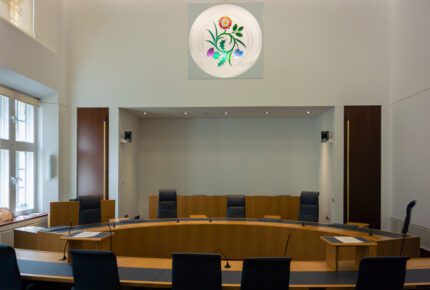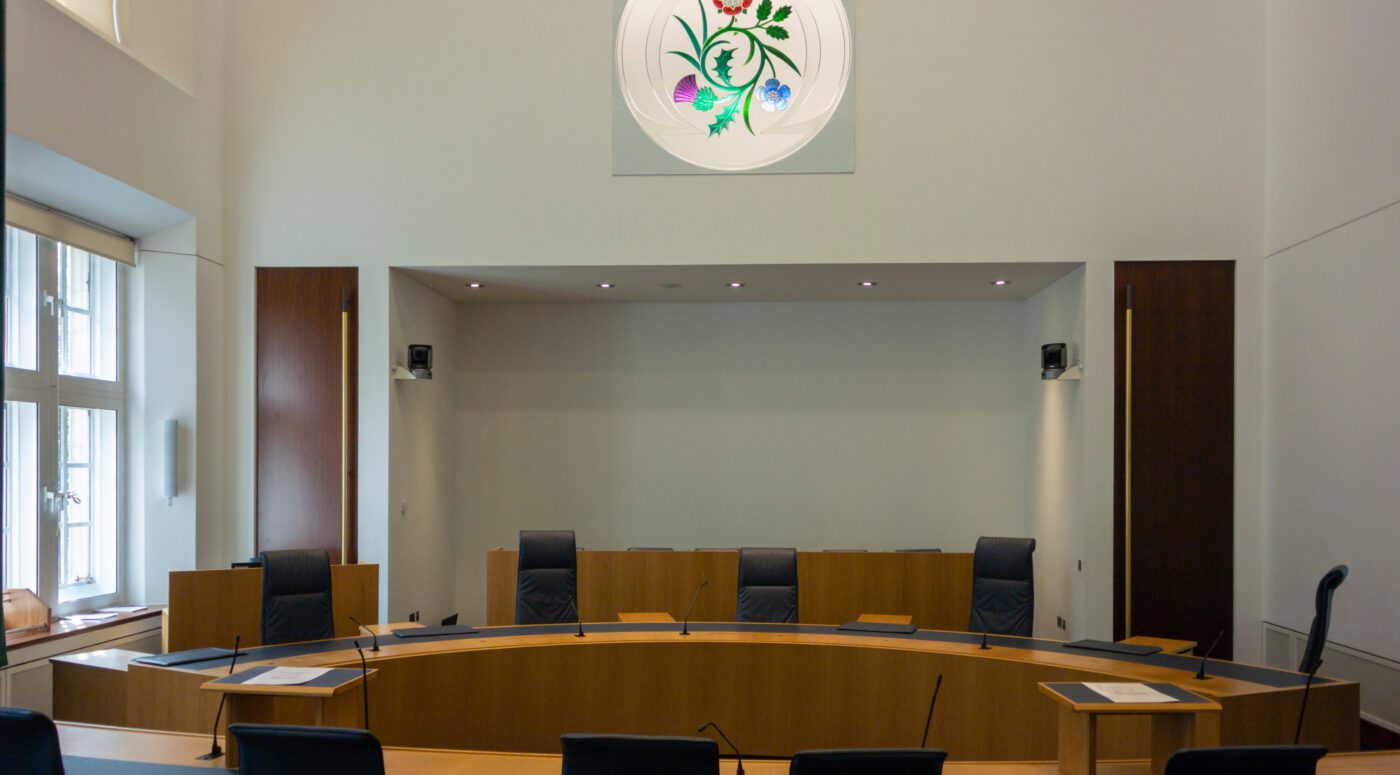

The age of criminal responsibility is the youngest age that you can be arrested or charged if you commit a crime. This age varies in different countries around the globe. This article explains the law around criminal responsibility in the UK. We discuss the age that you become criminally responsible, and what happens if children below the age of criminal responsibility commit crimes. We also look at some examples of children who have been held criminally liable for serious crimes. If your child has been accused of a crime, instruct a criminal defence solicitor in whom you trust today.
At what age do we become criminally responsible in the UK?
England and Wales
In England and Wales, the age of criminal responsibility is 10 years old. This means that children under 10 cannot be arrested or charged with a crime. However, other measures can be taken against children under the age of 10 if they break the law.
What about children who are over the age of 10 but under the age of 18? In England and Wales, children between 10 and 17 can be arrested, however their cases will be treated differently in comparison to adults. Their case will usually be held in the youth courts. In addition, their identity will not be disclosed outside of the court. In spite of these special measures for children, delays in the youth justice system mean that often children turn 18 whilst waiting for their hearing, and consequently have to appear in the adult court.
If a child under 18 is convicted, they will receive a different sentence than the equivalent offence committed by an adult. If they are given a custodial sentence, they will probably be taken to a secure children’s home if they are between the ages of 10 to 14, and a secure training centre for young people if they are under the age of 17.
Young people aged 18 upwards will be treated as adults by the law. However, if they are given a prison sentence, they can sometimes be sent to a Young Offenders Institution (YOI) if they are under the age of 21. YOIs cater for individuals between the ages of 15 and 21.
There are some important differences between secure children’s homes, secure training centres, and YOIs. Secure children’s homes are run by the local council, whereas training centres are run by private companies. Meanwhile, some YOIs are run by the Prison Service whereas others are run by private companies.
Scotland
In Scotland, the age of criminal responsibility is 8 years old. This means that a child aged 8 or older can be arrested or charged with a crime. However, under the Scottish rules, a child cannot be subject to a criminal prosecution until they are 12 years old. If a child between the age of 8 and 12 is arrested and charged, their case could go to a ‘children’s hearing.’ The hearing will be focussed on the child’s behaviour and circumstances, and not the offence. In Scotland, a child under 12 cannot receive a conviction. Children between the ages of 12 and 16 can be prosecuted, but only for serious crimes.
When was the age of criminal responsibility lowered to 10 in the UK?
The age of criminal responsibility in the UK has been 10 since 1968, however until 1998, there was a common law principle that made the threshold for prosecuting children under the age of 14 higher than people over the age of 14. This was known as the principle of doli incapax, which basically means ‘incapable of evil’. It required the prosecution to show not only that the child had committed the criminal act, but also that they knew it was seriously wrong rather than just naughty or mischievous.
The idea of this principle was to offer children some protection against being prosecuted before they are capable of understanding the significance of a criminal offence. However, this requirement was removed in 1998 following the trial of the murder of James Bulger, a toddler who was brutally killed by two 10 year old boys in 1993. The defendants abducted, tortured, and killed their victim. The case prompted the government to change the law via the Section 34 of the Crime and Disorder Act 1998.
The age of full criminal responsibility in England and Wales is the lowest in the whole of Europe. Whilst Scotland’s age of criminal responsibility is 8, this is not full criminal responsibility as children under 12 cannot be prosecuted. In France, the age of criminal responsibility is 13, but the doli incapax principle can apply up to the age of 18. Germany has an age of criminal responsibility of 14, whereas in Sweden the age of criminal responsibility is 18. Portugal has the highest age of criminal responsibility in Europe, at 16 years old. However, it is difficult to compare the respective ages accurately without understanding the context of the criminal law in which they apply. Nonetheless, it is clear that England and Wales have an unusually low age of criminal responsibility.
Critics of England and Wales’ low age of criminal responsibility highlight that it is out of line with other perceptions of children’s maturity. For example, persons are only granted the ability to sit on a jury, or to vote at the age of 18. Individuals are only assumed to have capacity to consent to sex at the age of 16. On the other hand, those in favour of the lower age of criminal responsibility advocated the ‘responsibilisation’ of children i.e. the idea that children should be held accountable for their actions.
Unfortunately, every year thousands of children and young people become caught up in the criminal justice system. In 2017-18, 65,000 children were arrested and 26,700 children and young people received a caution or a sentence. Although the number of convictions has declined by 82% since 2008, it is still a huge number of individuals who undergo a life-changing experience of being prosecuted at a very young age.
Examples of children being held criminally liable in the UK
James Bulger murder: The murder of toddler James Bulger by two 10 year old boys, Jon Venables and Robert Thompson, was a shocking case not only for its horrific facts but also for its impact upon criminal precedent. The two defendants were both only 6 months over the age of criminal responsibility at the time of the offence. The public outrage generated by the case contributed to the decision by the Labour government to introduce legislation removing ‘doli incapax’ – the rebuttable presumption that children under the age of 14 may not have the criminal mind necessary to allocate criminal responsibility.
Damilola Taylor murder: In 2000, Danny and Ricky Preddie, aged 13 and 12, were convicted of manslaughter for killing Damilola Taylor, who was 10 at the time, in Peckham, South East London. He died from blood loss after being stabbed with a broken bottle. The defendants were only convicted after the third trial took place. In the first trial, a key witness, who was 14 years old, was ruled unreliable by the judge, which led to the defendants being acquitted. The jury in the second trial could not reach a verdict. The defendants were eventually convicted following the third trial.
What happens if children below the age of criminal responsibility commit crimes?
If a child under 10 commits a crime in England and Wales, whilst they cannot be arrested, there are various actions that can be taken in order to manage their behaviour. Although they cannot be arrested or prosecuted, they can be issued with:
- A child curfew: This is where the child is not allowed to be in a public place between 9pm to 6am. It can last for up to 90 days.
- A child safety order: This places the child under the supervision of the local youth offending team. It usually lasts for up to 3 months. However, in some circumstances, it can be extended up to 12 months.
In addition, parents or guardians who are unable to curb the offending of children under their care may face legal action by the local authority, who could seek to remove the children from their care. If you are facing legal action relating to your children, you should contact a solicitor specialising in children law.
Where to get further help
If you or a loved one is a child accused of a criminal offence, it can be a daunting and stressful time for the whole family. Instructing a criminal defence solicitor in whom you trust could help take some of that weight off your shoulders. At Stuart Miller Solicitors, our experienced solicitors will help ensure that your child is treated fairly by the criminal justice process, and will help them get the best possible result. Contact us for a no-obligation consultation today.

